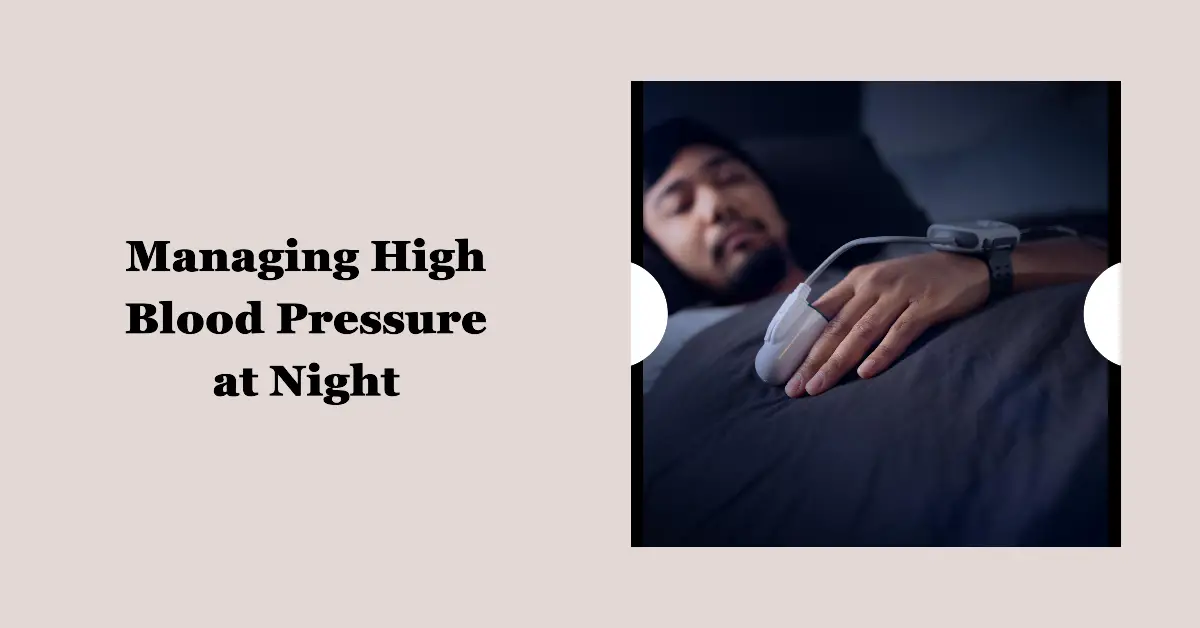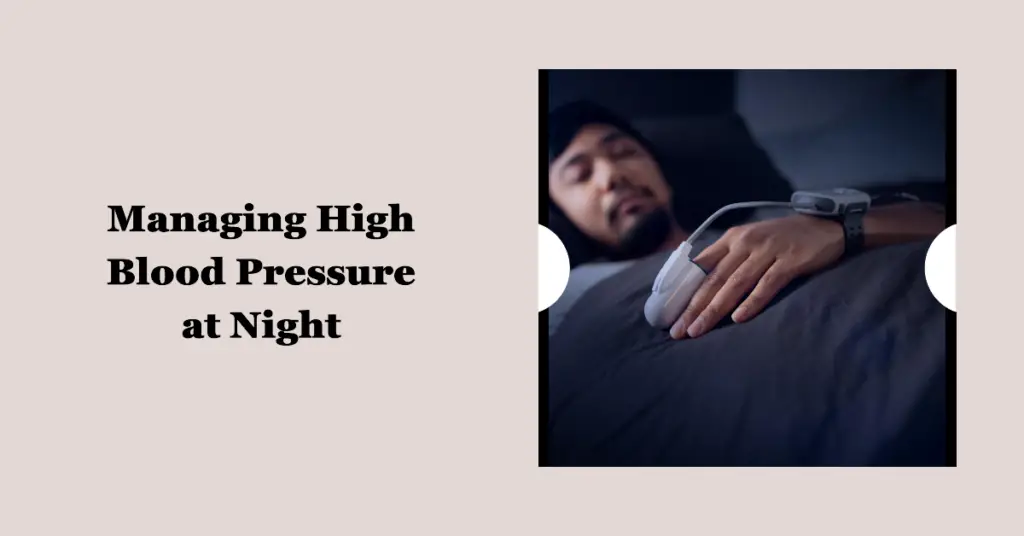
Introduction
Blood pressure is the force of blood pushing against the walls of your arteries. It is measured in two numbers: systolic blood pressure (the pressure when your heart beats) and diastolic blood pressure (the pressure when your heart rests).
High blood pressure, also known as hypertension, is a condition in which your blood pressure is consistently too high. It is a major risk factor for heart disease, stroke, and other health problems.

Nighttime High Blood Pressure
Nighttime high blood pressure is a condition in which your blood pressure is higher at night than it is during the day. This is also known as nocturnal hypertension.
Nighttime high blood pressure is a serious condition that can increase your risk of heart disease, stroke, and other health problems.
Symptoms of Nighttime High Blood Pressure
Most people with nighttime high blood pressure do not have any symptoms. However, some people may experience the following symptoms:
- Headache
- Nausea
- Dizziness
- Shortness of breath
- Restlessness
Causes of Nighttime High Blood Pressure
The exact cause of nighttime high blood pressure is not fully understood. However, there are a number of factors that may contribute to the condition, including:
- Sleep apnea: Sleep apnea is a sleep disorder that causes you to stop breathing repeatedly during the night. This can lead to a surge in blood pressure.
- Medications: Some medications, such as steroids and decongestants, can raise blood pressure.
- Underlying health conditions: Nighttime high blood pressure can also be a sign of underlying health conditions, such as kidney disease or diabetes.
Treatment for Nighttime High Blood Pressure
The treatment for nighttime high blood pressure depends on the underlying cause. If sleep apnea is the cause, your doctor may recommend treatment for sleep apnea. If medications are the cause, your doctor may recommend changing your medication or adjusting your dosage. If an underlying health condition is the cause, your doctor may treat the underlying condition.
Conclusion
Nighttime high blood pressure is a serious condition that can increase your risk of heart disease, stroke, and other health problems. If you are concerned about your blood pressure, it is important to talk to your doctor. They can help you determine if you have nighttime high blood pressure and recommend the best course of treatment for you.




